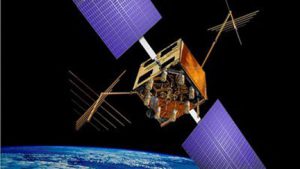Bloomberg
Lockheed Martin Corp. has outlined plans to build a satellite factory in the UK, which would be its first such facility outside of the US, according to a report in the Telegraph.
The Maryland-headquartered defence company has been looking into suppliers around the northern city of Newcastle, an emerging hub for space technology, said the company’s UK Chief Executive Paul Livingston.
Lockheed Martin is “willing to make an investment that could bring 2,000 jobs to the UK,†if the government permits competitive bidding for the next phase of its satellite communications system known as Skynet, Livingston told the Telegraph.
The factory’s construction does not depend on winning the new contract, though the UK “must show it is open
to other suppliersâ€, he added.
Airbus SE is the MoD’s current supplier.
It would be another step forward for the UK’s burgeoning space industry, which is already worth £16.5 billion ($19.9 billion) annually and supports close to 50,000 jobs.
The Ministry of Defence’s £6 billion Skynet 6 program aims to deliver battlefield communications to British and allied forces operating around the world. It is due to become
operational by March 2024.
The UK is aiming to establish a network of space hubs able to undertake a variety of missions, including traditional vertical launches from two sites in Scotland, amid rapid growth in the planned deployment of communications satellites.
The country’s facilities include the newly-built National Satellite Test Facility, which allows larger and more complex spacecraft to be prepared for launch in a single building. Large satellites require at least 6 months of testing before they’re launched.
The MoD said that it had awarded a £400-million contract to Babcock International Group Plc to operate Skynet’s satellite communications system. Under the deal, Babcock and its partners will manage the MoD’s satellites and ground stations for six years.
Sales in Lockheed Martin’s space division, which provides missile systems alongside satellites and space transportation, rose 12% in the fourth quarter of last year from the same period in 2021. It should outpace other programs in the coming years, according to Bloomberg Intelligence analysts.
 The Gulf Time Newspaper One of the finest business newspapers in the UAE brought to you by our professional writers and editors.
The Gulf Time Newspaper One of the finest business newspapers in the UAE brought to you by our professional writers and editors.
